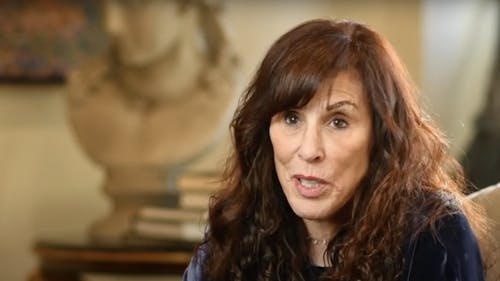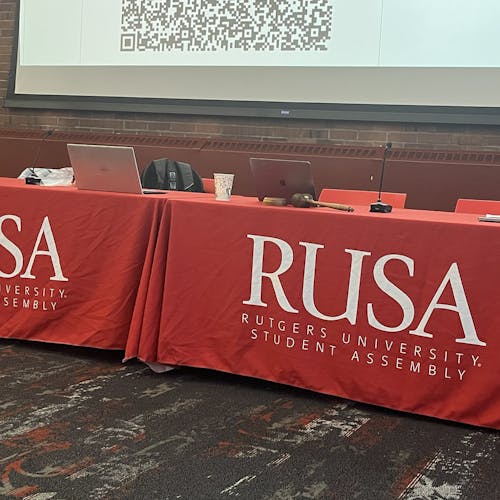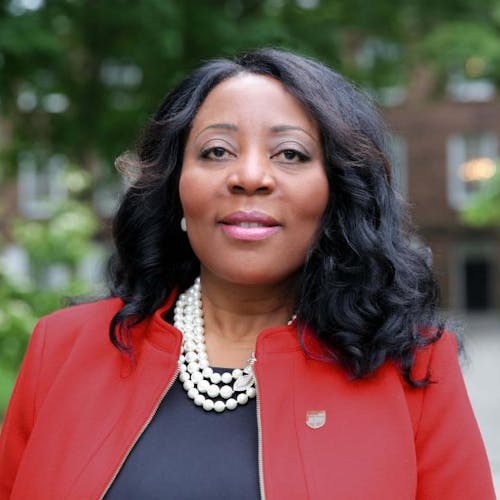Roxane Gay invites abortion rights activist Merle Hoffman to campus

On April 2, Roxane Gay, the Gloria Steinem Endowed Chair in Media, Culture and Feminist Studies, hosted "Making a Revolution," a reading and Q&A with reproductive rights activist Merle Hoffman in the Academic Building on the College Avenue campus, according to an announcement.
Upon taking the stage, Hoffman spoke about efforts to institute a national abortion ban, her experience becoming involved in abortion activism and her understanding of feminism.
She first commented on the recent addition of abortion rights to the French constitution and how differently abortion rights are legislated in the U.S.
"Republicans released the budget that endorsed a national ban on abortion, with no exception for rape or incest," Hoffman said.
Hoffman also highlighted cases in which women were denied abortions even under life-threatening or nonconsensual circumstances.
"We are definitely living in a dystopian, patriarchal, theocratic, dangerous, controlling universe when it comes to women and women's health and women's reproductive care," Hoffman said.
Hoffman then moved on to her experience becoming involved with abortion care and reproductive rights during her undergraduate years. At the time, prior to the legalization of abortion by the Roe v. Wade Supreme Court ruling in 1973, Hoffman worked for a doctor in the New York area who provided safe, legal abortions.
Hoffman said that it was in this setting that she saw firsthand the impact of abortion on a woman's life. She said this experience served as a foundation for her own perspectives on feminism.
"The ability to look in those women's eyes and say, 'It's over. You're not pregnant anymore,' was and is a gift to them and to me because, in that moment, their life was given back to them," Hoffman said.
She also spoke about the backlash and harassment she has faced for being part of the pro-choice movement.
"My house was burned down. The FBI had to be called in. I have harassments (and) invasions," Hoffman said.
Following the overturning of Roe v. Wade, Hoffman said that safe havens for abortion no longer exist.
"This is going to be a generational struggle. And we have to have the vision of a united movement, a united front that demands the right of legal, safe abortion because it is the basis of women's human, constitutional, moral rights," Hoffman said.
After the event's Q&A portion opened up, Gay asked Hoffman about tangible steps that can be taken, particularly politically, by feminist activists to make abortion a nationally insured right. Hoffman replied that she supports large-scale public demonstrations.
Gay followed up by asking why Hoffman believed previous protests had not worked, to which Hoffman responded by explaining that there is an enduring shame surrounding abortion activism and that the women's movement does not garner a lot of attention. Gay also asked why fundraising is not the sole solution to this issue.
"(Fundraising) is a temporary solution to the problem of women navigating second-class citizenship and not having fundamental human and civil rights," Hoffman responded.
Gay then gave the audience the opportunity to ask questions to Hoffman. Questions from the audience included those about the possibility of restrictions on contraception, how young people should navigate a post-Roe world and how to have discussions with people who make anti-abortion arguments.
"I really want you to understand that the agenda is to really create the fetus as a constitutional person having as many rights, which may, in fact, at times trump the woman's or the mother's rights," Hoffman said.
To stay up-to-date with abortion issues, Hoffman recommended the newsletter "Abortion, Every Day," published by Jessica Valenti.
Hoffman ended the event by highlighting again what individuals can do to increase abortion access.
"Look in the mirror, ask yourself, 'What can I do?' and thank you. It's a pleasure to be here," Hoffman concluded.



